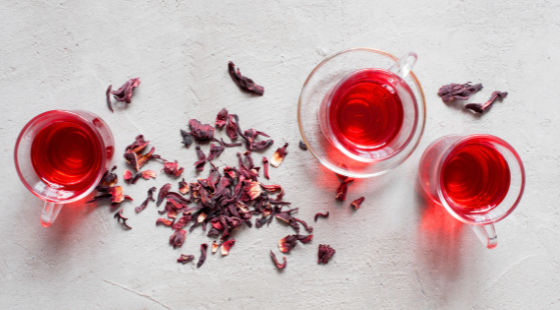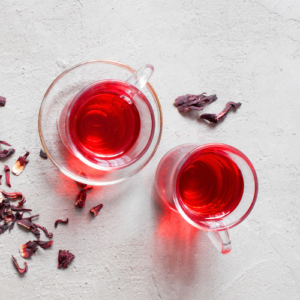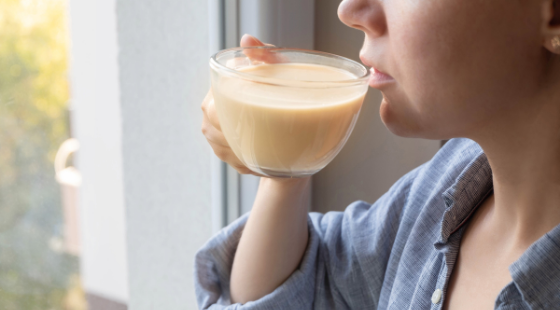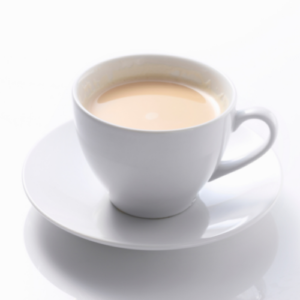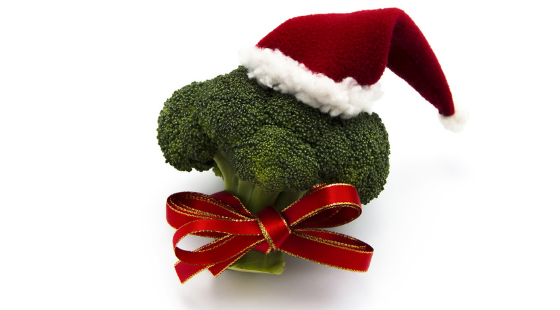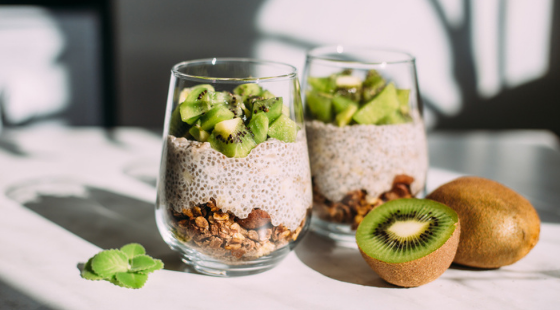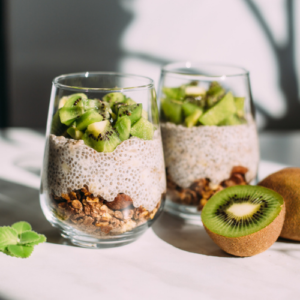Sleeping problems are on the rise and for a number of reasons. When we don’t get enough sleep not only do we feel tired and grumpy the next day but, we often tend to gravitate to stimulants such as coffee, sugar or carbs to help keep us going. When we don’t get appropriate sleep quality or quantity, our body does not have the chance to do all the amazing activities and tasks that kick in when we are asleep. As a result ongoing sleep issues can lead to numerous health problems.
A study conducted by Dr. Charles M. Morin at Université Laval revealed that 40% of Canadians had experienced one or more symptoms of insomnia at least three times a week and only 13% said they had consulted their doctor about it.
In addition to the information below, we’ve written more about sleep in our articles 12 Nutrition “Hacks” For Better Sleep and Top 5 Foods To Support Sleep.
The most effective way to deal with insomnia is identifying the underlying cause of it and then apply the appropriate recommendations. The most common causes of insomnia are depression, anxiety and stress, but your insomnia can also be due to hormonal imbalances, calorie restricting/eating disorders, food allergies, blood sugar imbalances, toxic build up and nutrient deficiencies.
So, let’s explore a few of these…
-
Consuming Stimulants Such As Coffee and Alcohol
People often think having that one or two glasses of wine or beer a night can help them to relax, take the edge off and get a better night sleep but this couldn’t be further from the truth. Although alcohol can help you feel relaxed, it actually interferes with sleep. Alcohol can reduce overall sleep time, and cause shorter, lighter, and less restful sleep. Alcohol also impairs the transport of tryptophan into the brain which is important in making melatonin to help us sleep.
As much as we love our cup of coffee it can hinder us getting a good night’s sleep and believe it or not even 1 to 2 cups a day can be problematic. That’s because caffeine can remain in our bodies for up to 20 hours so even sipping on your morning cup of joe can inhibit your sleep at night. As we know coffee gives us a pick me up; that is because it produces stimulating hormones such as adrenaline, norepephrine and cortisol which help us to feel alert and energized. Caffeine has been associated with insomnia, restless leg syndrome, and periodic leg movement. Remember caffeine is also found in hot chocolate, chocolate and some teas, so if you are not a big coffee drinker you might still be having a problem with the caffeine in these foods and beverages.
Both caffeine and alcohol can also decrease the absorption of nutrients essential for sleep such as B vitamins, magnesium and calcium. They are also a natural diuretic so can cause you to have to wake up during the night to use the washroom.
Monitor you intake of these beverages and see if you notice a difference when you consume them and when you don’t.
-
Food Allergies
Believe it or not food allergies can be a common culprit of insomnia. Food allergies can cause difficulties falling asleep and cause frequent awakenings. Foods that are high on the allergenic profile include wheat, corn, milk, chocolate, nuts, egg whites, seafood, red and yellow dyes and yeast, but basically it can be any food. The problem with food intolerances and sensitivities is that it can be hard to detect as there can be up to a 3 day delay in a response to a specific food that you ate. Imagine something you ate on Monday and having insomnia problems on the Wednesday. The other issue is that you may consume that problematic food on a daily basis and subsequently have sleeping problems every single night. Food intolerances can also cause the release of histamine which can also disrupt the brain chemistry and lead to sleep disturbances.
Although you can do blood work for food allergy testing, the best way to determine if you have an issue is complete the food elimination diet for 2 weeks and then reintroduce one food type back into the diet for 3 days and monitor symptoms. If there is no change in sleeping patterns then this food is not the culprit and you repeat this procedure until you identify the problem food or foods.
-
Blood Sugar Imbalances
Consuming too much sugar and skipping meals can contribute to unbalanced blood sugars which can induce nighttime hypoglycemia. When blood sugars drop the body releases hormones such as adrenalin and cortisol that stimulate the brain and indicate that it is time to eat. This can awaken you or prevent you from entering into deep sleep.
-
Smoking
Nicotine is a stimulant and as a result many smokers have difficulties with sleeping problems. In a poll conduced by the National Sleep foundation 46% of smokers reported experiencing sleep insomnia a few nights a week as compared to 35% of non-smokers. Similar to alcohol and caffeine, the nicotine found in cigarettes stimulates the release of adrenaline and norepinephrine, which are hormones that activate the body, increase heart rate, and elevate blood pressure as well as keep us awake.
-
Dieting
Anorexia, losing weight, food restriction, or dieting can contribute to poor sleep with many experiencing frequent waking at the second half of the night. Both animal and human research has shown that starvation-level calorie restriction leads to sleep interruptions and a reduction in slow-wave sleep, also known as deep sleep (1).
In another small study of 10 young women, four weeks of dieting led to greater difficulty falling asleep and a decrease in the amount of time spent in deep sleep (2). Feeling as though you are too hungry to fall asleep or waking up hungry are major signs that you’re not getting enough to eat.
-
Nutrient Deficiencies
There are a number of nutrients that help us to get to sleep and maintain sleep throughout the night and deficiencies in these nutrients can cause us to experience difficulty falling asleep and having restful sleep. Vitamin and minerals deficiencies related to sleep quality include B vitamins, calcium, magnesium, zinc, copper, iron, and vitamin E.
Deficiencies in copper and iron have ben linked to greater difficulties in getting to sleep and decreased sleep quality. Studies indicate that low levels of iron correlated with an increased incidence of restless leg syndrome. Vitamin E deficiency may also be a factor in restless leg syndrome (3).
Although B vitamins are good for energy they are also important for sleep. Deficiencies in folate have been linked to insomnia and restless leg syndrome. Plus, your body needs vitamin B6 to help convert tryptophan into melatonin which is our sleep hormone (4).
Calcium and magnesium are natural calming sedatives to the central nervous system. Magnesium is a natural muscle and nervous system relaxant so also important if sleeping issues are related to pain but also for stress, anxiety and irritability.
If you find you need a little more sleep support, you could consider taking some natural supplements:
- Magnesium deficiency is so common nowadays, boosting your intake with a supplement could do wonders for you. Try taking 400mg of magnesium glycinate before going to bed. This is best for people that struggle with sleep due to stress, anxiety, pain or difficulty relaxing.
- Melatonin is the most popular natural aid for sleep and can be very effective for those suffering from insomnia. Try taking 1-3mg before bedtime for a few weeks to help reset your sleep/wake cycle. Some people find they do not absorb melatonin in a pill form and require a liquid form. This is best for people struggling with jet lag or have disruptions in their sleep wake cycle.
As with all supplements, it is best to check with a qualified health care provider such as a nutritionist or naturopathic doctor, before getting started!
References
1 https://pubmed.ncbi.nlm.nih.gov/15033150/
2 https://pubmed.ncbi.nlm.nih.gov/8310984/
3 Arthur C, Guyton, MD and John E Hall PhD Textbook of medical physiology 9th edition (Philadelphia)
4 Kennedy, Tighe, Brow. “Melatonin and Cortisol switches during mania, depression and Eythmia” Depressed Nocturnal plasma melatonin levels” Journal of Nervous and Mental Disease 1777:5 (1989), 300-303
